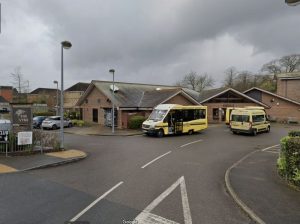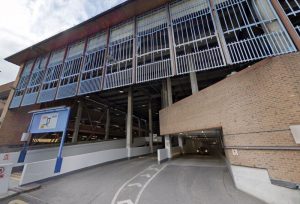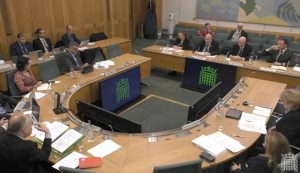Epsom and Ewell’s Poole Road Pavilion re-roof costs go through the roof. The Strategy and Resources Committee Epsom and Ewell Council met September 21 to authorize the extra costs.
The tenders received exceeded the allocated budget. An extra £105,000 from the capital receipts reserve is needed to cover the increased costs.
Cllr Robert Leach (RA Nonsuch) stated he did not object to the proposal in principle but raised a concern. “The three tenders all come in suspiciously close and all above the manufacturers estimate. This seems to be the trend in local authorities. We get a lowball estimate. And then when the tenders come in, we find that they’re significantly more.” He questioned why the estimate was so far off the mark, resulting in a cost that is over a third more than originally anticipated.
The Council’s Senior Surveyor responded to concerns about cost estimates and tenders. He explained that prices can vary significantly in the current market due to factors like energy and transportation costs. In this case, the manufacturer may have provided a lower estimate, contributing to the cost discrepancy. “I don’t think it’s because we’re a council. It’s just the way it is in the market.”
Cllr Alan Williamson (RA West Ewell) was also concerned about the substantial increase in cost for the roofing repairs. “That’s quite a big discrepancy on the original estimation.”
The Head of Finance explained that the reason for bringing the roofing project cost increase back to the committee is the significant change in costs. “It’s right that you as members should consider whether, at the increased cost of a quarter of a million, you still think it’s a viable scheme that the council should progress.”
“In this particular instance, I think I was given some dodgy advice from the manufacturer. So apologies for that,” he said.
Cllr Shanice Goldman (RA Nonsuch) asked about the process for evaluating estimates. “Do we use our own internal expertise to kind of look at that and check the validity of estimates that we’ve been given?” As she understood it, the original amount of £150,000 was agreed upon just nine months ago in January, rather than two years ago.
The officer responded: “The process for the capital bidding starts two years before. So when you’re getting the estimates together, by the time we get on site, it is virtually two years past.” He also added they relied on the manufacturer’s estimate for the cost, and while they usually expect estimates to be higher, they couldn’t have foreseen the extent of this particular cost increase.
Cllr Goldman sought assurance that the council will take steps to ensure the accuracy of the data provided for decision-making. She said “It’s quite difficult for members to make a vote or to vote on matters where the data isn’t accurate.” She asked for improvements in the estimation process to enable members to make informed decisions based on reliable information.
Cllr Hannah Dalton, the Vice-Chair of the Committee, (RA Stoneleigh) recommended that an internal audit look at this particular procurement to allay any member’s concerns around it.
The additional funding for the project was approved as was the recommendation that an internal audit review of the procurement process take place.
On the Council’s IT strategy Cllr Alison Kelly (LibDem Stamford) raised questions regarding the council’s carbon reduction target, emphasizing the need to avoid greenwashing practices and ensure that suppliers can demonstrate their commitment to carbon reduction. She asked, “How are we as a council going to avoid falling into that trap? And will the suppliers be expected to explain how they meet carbon reduction neutrality? And what weight would be put on these when choosing the preferred supplier?”
The Head of IT, highlighted the importance of incorporating metrics like Power Usage Effectiveness (PUE) into their procurement process as they shift to cloud-based services. “We will be looking to include a number of metrics within our procurement…….in particular, as we move to cloud-based services.”
Cllr Kelly also inquired about the reuse and disposal of old equipment. “I want to know what consideration has been given to the reuse and disposal of old equipment. Will this perhaps be indicated in later report?”
The officer expressed willingness to consider requests for equipment reuse and mentioned interactions with recycling companies and charities for equipment recycling. “I’m happy to receive any requests from councillors where they’ve potentially got a use for equipment,” The Council also receives inquiries from recycling companies, some of which offer free services. Additionally, there are charities, both local and in the southern region, that aim to recycle equipment for use in schools and further education.
The discussion then shifted to the reskilling of current staff members to adapt to new IT strategies.
The officer highlighted the Council’s training plans. “Within our Microsoft Enterprise Agreement, there is a free training suite, and we are working our way through that to actually develop a learning plan for individual staff.” He also added that this learning plan is designed to help individual staff members acquire new skills and knowledge.
Cllr Chris Ames (Labour Court Ward) raised questions about the factors affecting residents’ ability to adapt to service changes. “ I think there maybe a larger number of factors that might lead some people to have difficulty in channel shift.”
On the Household Support Fund, Cllr Neil Dallen (Committee Chair – RA Town) explained the urgent need for funding to support vulnerable residents. The item proposed to continue the partnership with the Good Company, a local charity that runs the local food bank, Epsom Pantry, and the Epsom Refugee Network.
The last two items on the agenda, included the Commercial Tenant Update and the Commercial Property Update were discussed in private as they “pertain (ed) to information related to the financial or business affairs of specific individuals or entities.”









